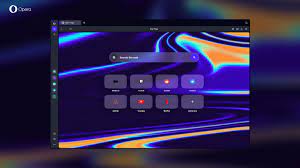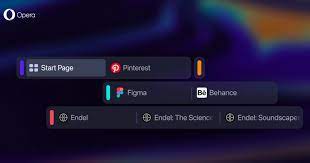Opera has introduced a new browser, Opera One. In addition, it will eventually take the place of its main product. Without elaborating, the Norwegian corporation claimed that this new browser contains features that will prepare it for a “generative AI-based future.”
About the Opera New Browser
Opera One’s main feature is currently available as a developer preview. In addition, it is a brand-new tab grouping idea called “Tab Islands.”
Based on context, it automatically arranges the tabs. For instance, tabs with various menus and locations will group together if people seek dinner spots. Google docs that they are working on in bulk will also group together.

Users can expand and compress the vertically colored pills symbolizing each island (or group) with a click. Collapsed islands have a helpful tooltip feature that can direct them to the appropriate tab group.
According to Opera’s product director Joanna Czajka, this new strategy is a natural way of arranging the tabs into contextual groups without interrupting the flow.
However, Opera is not the only web browser developer attempting a novel approach to tabs. Startups like the Browser Company and SigmaOS have centered their efforts on constructing several workspaces and opening/locating tabs via a taskbar.

The business said that Opera One makes advantage of Multithreaded Compositor. In addition, it aids in the GPU’s ability to produce a variety of sophisticated web animations smoothly.
In addition to tab island and other planned additions like a new address bar, Czajka claimed that this aids in improved performance.
Closing Note
Opera didn’t provide many details about the new browser’s AI-focused capabilities. However, it was made clear that the ChatGPT and ChatSonic integrations that it added to the leading browser in March will get enabled by default.
Also Read: https://thecitizenscoop.com/telegram-brings-new-feature-for-users/
This is Opera One’s initial release, later this year. It will replace the company’s current flagship product for Windows, MacOS, and Linux, according to Opera.




